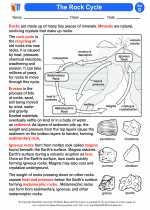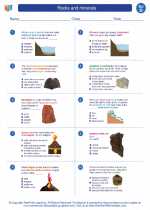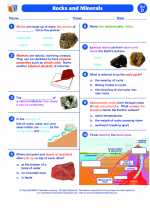Characteristics of Neutrons:
- Mass: Neutrons have a mass of approximately 1.675 x 10^-27 kilograms, which is similar to the mass of a proton.
- Charge: Neutrons have no electric charge, making them electrically neutral.
- Stability: Neutrons are relatively stable when they are within an atomic nucleus, but they can become unstable when outside the nucleus and undergo decay processes.
Importance of Neutrons:
Neutrons play a crucial role in determining the stability and properties of an atom. Some key points to consider are:
- Nuclear Stability: Neutrons contribute to the stability of the atomic nucleus. The number of neutrons in relation to protons can affect the stability of an atom.
- Nuclear Reactions: Neutrons are involved in nuclear reactions, such as nuclear fission and nuclear fusion, which are fundamental processes in nuclear power generation and atomic weapons.
- Neutron Activation: Neutrons can induce radioactivity in certain materials through a process called neutron activation. This property is utilized in various scientific and industrial applications.
Study Guide:
To enhance your understanding of neutrons, consider the following study guide:
- Research and note down the discoveries and contributions of scientists related to the study of neutrons, such as James Chadwick who discovered the neutron in 1932.
- Investigate the role of neutrons in nuclear reactors and the concept of nuclear chain reactions.
- Explore how neutrons are used in various scientific fields, such as neutron scattering in materials science and neutron imaging in biology and medicine.
- Understand the concept of isotopes and how the number of neutrons can vary within atoms of the same element.
- Examine the impact of neutron radiation on materials and living organisms, including its applications in cancer treatment and radiation therapy.
[Neutrons] Related Worksheets and Study Guides:
.◂Science Worksheets and Study Guides Fourth Grade. Rocks and minerals
Study Guide Rocks and minerals
Rocks and minerals  Activity Lesson
Activity Lesson The Rock Cycle
The Rock Cycle  Worksheet/Answer key
Worksheet/Answer key Rocks and minerals
Rocks and minerals  Worksheet/Answer key
Worksheet/Answer key Rocks and minerals
Rocks and minerals  Worksheet/Answer key
Worksheet/Answer key Rocks and minerals
Rocks and minerals  Worksheet/Answer key
Worksheet/Answer key Rocks and Minerals
Rocks and Minerals  Vocabulary/Answer key
Vocabulary/Answer key Rocks and minerals
Rocks and minerals  Vocabulary/Answer key
Vocabulary/Answer key Rocks and minerals
Rocks and minerals  Vocabulary/Answer key
Vocabulary/Answer key Rocks and minerals
Rocks and minerals  Vocabulary/Answer key
Vocabulary/Answer key Rocks and minerals
Rocks and minerals 

 Activity Lesson
Activity Lesson
 Worksheet/Answer key
Worksheet/Answer key
 Worksheet/Answer key
Worksheet/Answer key
 Worksheet/Answer key
Worksheet/Answer key
 Worksheet/Answer key
Worksheet/Answer key
 Vocabulary/Answer key
Vocabulary/Answer key
 Vocabulary/Answer key
Vocabulary/Answer key
 Vocabulary/Answer key
Vocabulary/Answer key
 Vocabulary/Answer key
Vocabulary/Answer key

The resources above cover the following skills:
Concepts of Earth Science (SD1, SD2, SD3, SD4)
The student demonstrates an understanding of geochemical cycles by describing that most smaller rocks come from the breaking and weathering of larger rocks as part of the rock cycle.
The student demonstrates an understanding of geochemical cycles by recognizing the physical properties of water as they relate to the rock cycle.